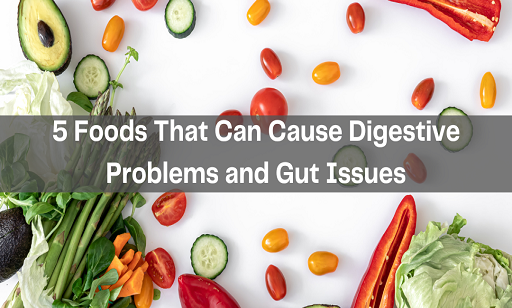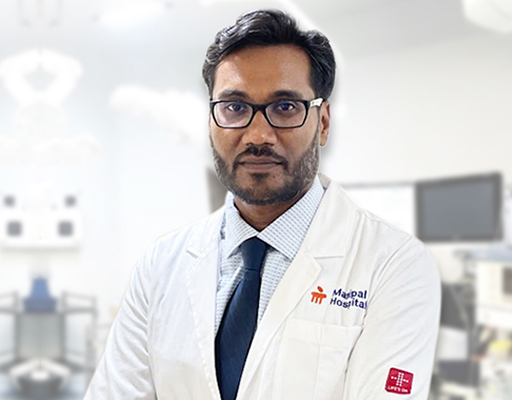-

Every now and then, everyone experiences stomach pain. A stomach ache can be all too common, whether it is the result of a stomach bug, food poisoning, or simply eating too much of something that doesn't sit well in our bodies.
An upset stomach is most frequently caused by something we eat, and it is typically accompanied by symptoms like gas, bloating, acid reflux, and nausea. A more serious underlying issue, such as lactose intolerance or digestion issues, may, however, occasionally be linked to an upset stomach.
All these problems generally lead to health conditions ( intestinal infections) like diarrhoea, cramps, nausea, vomiting, and fever. These conditions occur due to a bacterial or viral tummy bug, which is part of gastroenteritis.
Gastroenteritis is a transient illness brought on by infection and inflammation of the gastrointestinal tract. The gastrointestinal tract includes
- Oral Cavity
- Oesophagus
- Stomach
- Pancreas
- Gallbladder
- Liver
- Small Bowel
- Large Intestine/Colon/Appendix
- Rectum
- Anus
Any disease or issue that occurs in this whole digestive tract can be referred to as gastroenteritis problems, the gastroenteritis symptoms are mentioned belowGastroenteritis symptoms
The main symptoms of gastroenteritis are:
- Diarrhoea
- Stomach cramps
- Belching, gagging
- Indigestion, nausea
- Vomiting
- Flatulence
- Chills
- Dehydration
- Fatigue
- Fever, light-headedness
- loss of appetite.
Also common: fast heart rate, headache, insufficient urine production, weakness, or weight loss.What foods to avoid if you have gastroenteritis?
If you face or suffer from any of the symptoms of gastroenteritis, avoid some foods that include:
- Coffee, tea, and other caffeinated drinks
- Sweetened sodas
- Fruit juices
- Carbonated drinks
- Fried and fatty foods
- Dried fruits
- Dairy products
- Chocolate and candy
- Spicy foods
These foods can make your symptoms worse. Stop eating any food that makes your stomach upset and creates a feeling of nausea.Gastroenteritis, what to drink
In general, dehydration is the main cause of gastroenteritis. Because of this condition, humans need proper rehydration. Symptoms of dehydration include:
- Thirst
- Tiredness
- Dizziness
- Confusion
- Dark yellow urine
To prevent dehydration, consume fresh juice, coconut water, or water or drinks containing a higher percentage of electrolytes. Instead of guzzling a lot of liquids at once, try to take small, frequent sips over a few hours to prevent nausea and vomiting from getting worse.Gastroenteritis diet plan
It's crucial to eat normally while suffering from gastroenteritis. In fact, eating enables the body to rebuild its strength and speeds up the healing of the intestinal lining. On the other hand, skipping meals makes diarrhoea worse.
Start by eating small amounts of food. Then, based on your appetite and how your condition is improving, gradually increase the amounts. There are many foods to include in the diet for gastro. Here are a few:
Food to eat
- Pasta
- Rice
- Lean meats prepared with little fat
- Low-fat cooked fish
- Eggs
- Fresh fruits, or fruits canned in their own juice
- Cooked vegetables
- Sugar-free cereals
- Bread
You can eat the following foods if you tolerate them well or if they are lactose-free:- low-fat yoghurt;
- low-fat cheese;
- milk.
What is the fastest way to cure gastroenteritis?Most often, eliminating certain foods from your diet will help you figure out exactly what might be causing your stomach issues. Then, you can see if your stomach and overall digestion have improved as a result of the removal of those foods.
Avoiding contaminated food and water and washing hands can often help prevent infection. Treatment consists primarily of rest and rehydration.
While most foods are okay to consume in moderation, there are some you may want to rethink eating, especially if you experience stomach discomfort.
There are a few ways that can cure gastroenteritis are;
- Drink enough water to avoid becoming dehydrated.
- Adults and older children can drink sports drinks
- Babies and young children can consume an oral rehydration solution like Pedialyte.
- Stay away from sugary beverages like sodas and juices, which can make diarrhoea worse.
- Eat mild, bland foods such as rice and bananas
- If you can tolerate it, fruits, vegetables, and whole grains may be consumed
- Avoid foods with a lot of fat and sugar, which can aggravate symptoms
- Take Over-the-counter (OTC) medications
Also, keep track of the age group of the person receiving surgical gastroenterology treatment.- Take loperamide (Imodium) to stop diarrhoea for one to two days if you're an adult under 65, have no fever, and have no blood in your stool.
- Without first consulting a doctor, adults over the age of 65, as well as patients who have a fever or blood in their stool, should not take loperamide.
- No medication should be given to children to stop diarrhoea.
If you don’t feel better after following all these methods, then it’s prescribed to go to a gastroenterology hospital. Follow the doctor's advice and if you are the one suffering from this condition in the city of Bangalore, visit MH Surgery to consult the top gastroenterologist in Bangalore.

Author: DR. MANJUNATH HARIDAS (MD FACS FICS)
Dr. Manjunath Haridas is one of the leading surgeons for Gastrointestinal Sciences in Whitefield, Bangalore. His area of expertise includes Gastrointestinal Surgery - Colon Rectum, Foregut Advanced Laparoscopic Surgery, and Minimally invasive surgery. He is Honored by the American Board of Certification, fellow Of the American College of Surgeons, SAGES membership and more.

